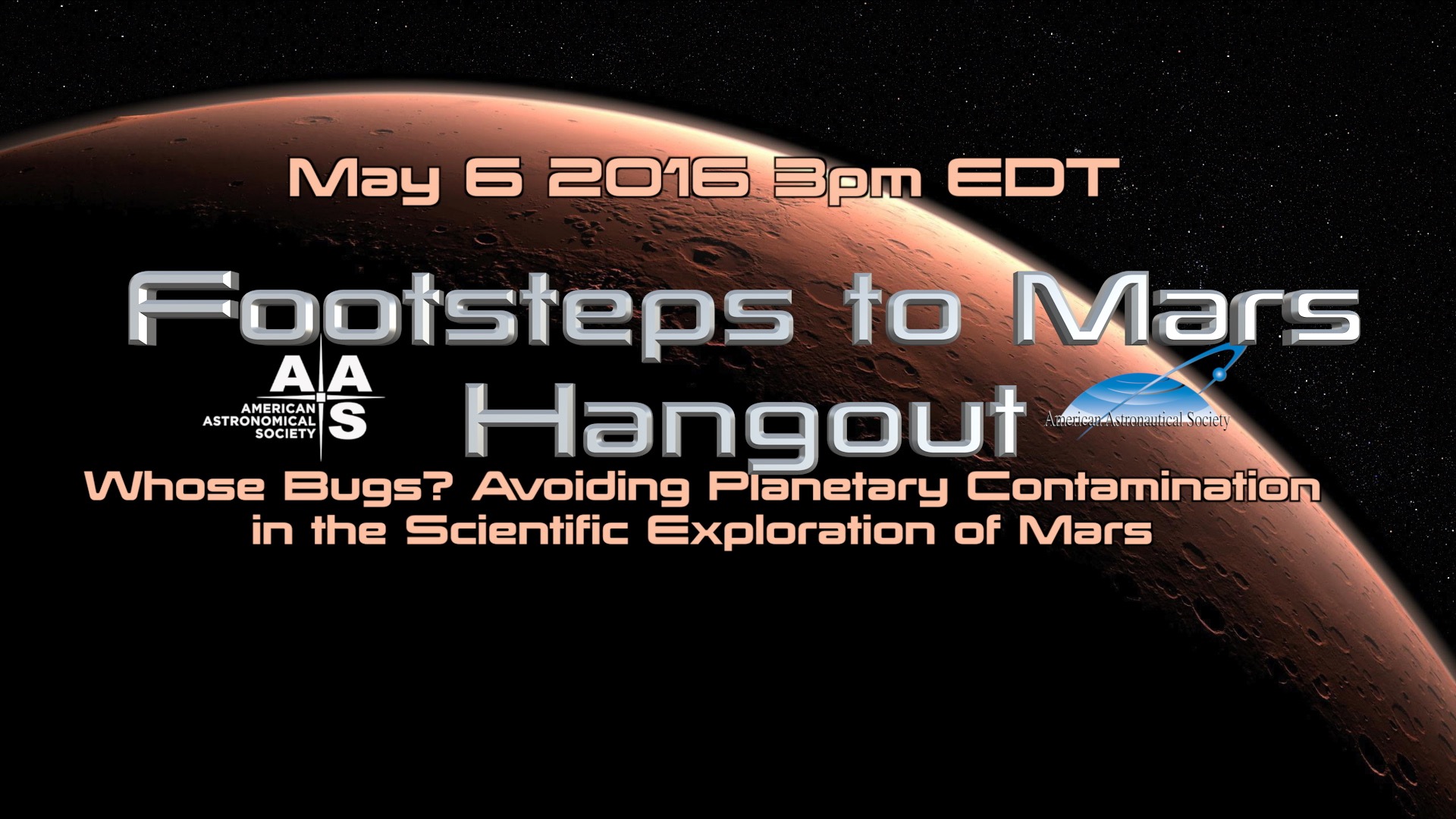"Whose Bugs? Avoiding Planetary Contamination" Hangout 6 May
Alberto Conti BAE Systems, Inc.
Scientists have been exploring the surface of Mars with increasingly sophisticated missions ever since NASA's Viking missions in 1976. Each successful mission has revealed even more mysteries of the Red Planet. Now, as future missions may be closing in on whether Mars is home to life, scientists must also make sure that our robots sent to Mars are not carrying Earth life... and that when samples one day are returned, Martian bugs are not brought home.
Tune into the next "Future in Space" hangout, "Whose Bugs? Avoiding Planetary Contamination in the Scientific Exploration of Mars," on Friday, 6 May, at 3:00 pm ET to learn more. Join regular hosts Tony Darnell, Harley Thronson, and Alberto Conti as they speak with Dr. Jennifer Stern and Dr. Bette Siegel about future scientific programs for Mars exploration and how both planets are protected against contaminating each other.
We hope you can join us! Please bring your questions and comments for our experts. You can join us on YouTube and Facebook.

What Are "Future in Space" Hangouts?
"Future In Space" Hangouts bring the future of space astronomy and astronautics to you every month via Hangouts on Air. With the cooperation of both the American Astronomical Society (AAS) and the American Astronautical Society (the other AAS), our hosts Tony Darnell, Alberto Conti, and Harley Thronson bring you topics that look beyond current space-astronomy research and missions and peer into the unfolding possibilities of what we may learn about the universe with members of the American Astronomical Society. We will peer into what we hope to learn about exoplanets, black holes, the early universe, quasars, and life in the universe along with what technologies might help us — and a whole host of other topics in space astronomy.
We will also explore the technology and engineering possibilities of space travel and research with members of the American Astronautical Society and probe what our future in space may look like and how we might get there. We will examine the underlying technologies of future space telescopes, orbiters, landers, and human space vehicles. We will delve into topics that help us understand the possibilities and limitations of human space flight and eventual human colonization of other worlds.
We hope you can join us each month as we bring experts from both AAS's — people who think about and plan for our future in space — to your computer, tablet, or smartphone. We invite you to bring your questions and comments and get ready to learn about the amazing possibilities for the future of space astronomy and exploration.

